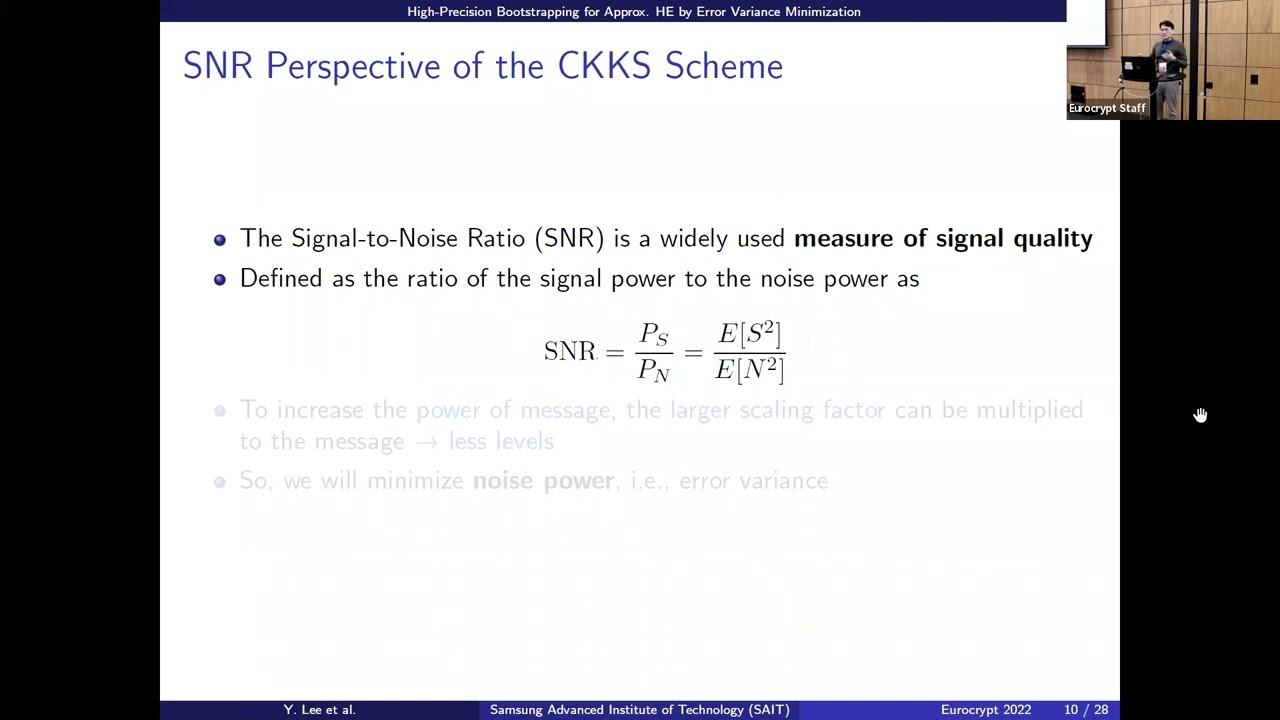Welcome to the resource topic for 2020/1549
Title:
High-Precision Bootstrapping for Approximate Homomorphic Encryption by Error Variance Minimization
Authors: Yongwoo Lee, Joon-Woo Lee, Young-Sik Kim, Yongjune Kim, Jong-Seon No, HyungChul Kang
Abstract:The Cheon-Kim-Kim-Song (CKKS) scheme (Asiacrypt’17) is one of the most promising homomorphic encryption (HE) schemes as it enables privacy-preserving computing over real (or complex) numbers. It is known that bootstrapping is the most challenging part of the CKKS scheme. Further, homomorphic evaluation of modular reduction is the core of the CKKS bootstrapping, but as modular reduction is not represented by the addition and multiplication of complex numbers, approximate polynomials for modular reduction should be used. The best-known techniques (Eurocrypt’21) use a polynomial approximation for trigonometric functions and their composition. However, all the previous methods are based on an indirect approximation, and thus it requires lots of multiplicative depth to achieve high accuracy. This paper proposes a direct polynomial approximation of modular reduction for CKKS bootstrapping, which is optimal in error variance and depth. Further, we propose an efficient algorithm, namely the lazy baby-step giant-step (BSGS) algorithm, to homomorphically evaluate the approximate polynomial, utilizing the lazy relinearization/rescaling technique. The lazy-BSGS reduces the computational complexity by half compared to the ordinary BSGS algorithm. The performance improvement for the CKKS scheme by the proposed algorithm is verified by implementation over HE libraries. The implementation results show that the proposed method has a multiplicative depth of 10 for modular reduction to achieve state-of-the-art accuracy, while the previous methods have depths of 11 to 12. Moreover, we achieve higher accuracies within a small multiplicative depth, for example, 93-bit within multiplicative depth 11.
ePrint: https://eprint.iacr.org/2020/1549
Talk: https://www.youtube.com/watch?v=WSSQ7x2Fm8E
Slides: https://iacr.org/submit/files/slides/2022/eurocrypt/eurocrypt2022/239/slides.pdf
See all topics related to this paper.
Feel free to post resources that are related to this paper below.
Example resources include: implementations, explanation materials, talks, slides, links to previous discussions on other websites.
For more information, see the rules for Resource Topics .
